|
|
Saturday Notes: Apple Finances, plus the Second Store in Bangkok; Early Decisions on Internet use, Good and BadBy Graham K. Rogers
Apple today announced financial results for its fiscal 2020 third quarter ended June 27, 2020. The Company posted quarterly revenue of $59.7 billion, an increase of 11 percent from the year-ago quarter, and quarterly earnings per diluted share of $2.58, up 18 percent. International sales accounted for 60 percent of the quarter's revenue. Mike Peterson (AppleInsider) and others comment on the new growth records seen from from wearables, Macs and iPads. The last two probably saw this growth because of the number of people working or staying at home in many countries. Note also that the balance of sales for the USA and international is 40:60 which suggests that there is still room for growth in countries outside the USA. Perhaps not surprisingly there was no prediction for the next quarter, which is usually the largest because it includes the holidays of Thanksgiving (US-only), Christmas (some countries) and New Year (worldwide) although there was a note from Luca Maestri that the iPhone 12 was to be delayed for a few weeks until October. However, DigiTimes, the well-known rumor mill, insists it is on track for September (Stephen Warwick, iMore). It is like guessing whether Dr Fauci or Donald Trump is more likely to be right. We will see if Apple or DigiTimes is correct. The October release could well push back other product releases, both software and hardware. With iOS linked to the next iPhone, and Big Sur including code specifically written for the next generation of Macs with their Apple Silicon, there is a cascade effect. The usual process is that iOS is released after the iPhone announcement and just before the phones go on sale. A few days later the next version of macOS is put out and this would coincide this year with the new Macs; but we are not living in normal times.
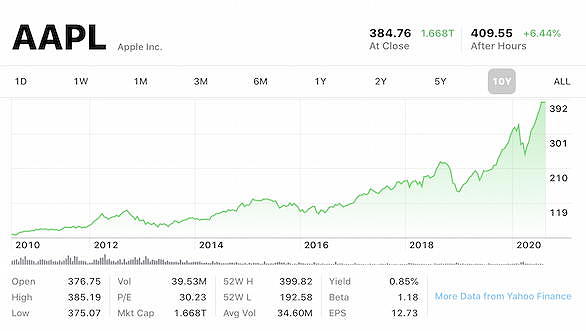
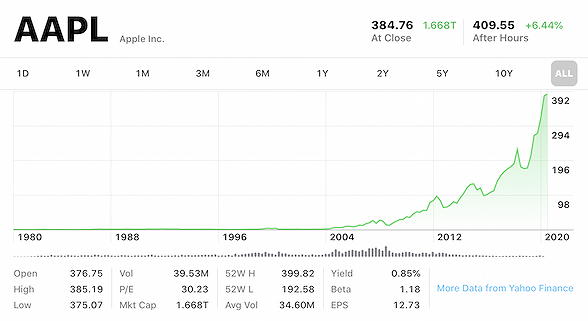
The Board of Directors has also approved a four-for-one stock split to make the stock more accessible to a broader base of investors. Each Apple shareholder of record at the close of business on August 24, 2020 will receive three additional shares for every share held on the record date, and trading will begin on a split-adjusted basis on August 31, 2020. This is not the first time that Apple has done this, with the most recent being the 7:1 split in 2014. This means that the price for an individual share will fall to around $80 on today's prices, so these will be more accessible to investors. Bear in mind that when the iPhone was announced in 2007, the shares hit $200, so one of those shares (with the price just under $385 today) would have had a value of $2693.32 today if there had been no split, so this action makes sense if new investors are to be attracted. According to Apple Investor information, the stock had also been split 2:1 in 1987, 2000 and 2005.
[The ]technology lets shoppers tap their credit card or smartphone on another phone to process a payment. The system works with an app and doesn't require hardware beyond a Near Field Communications, or NFC, chip, which iPhones have included since 2014.
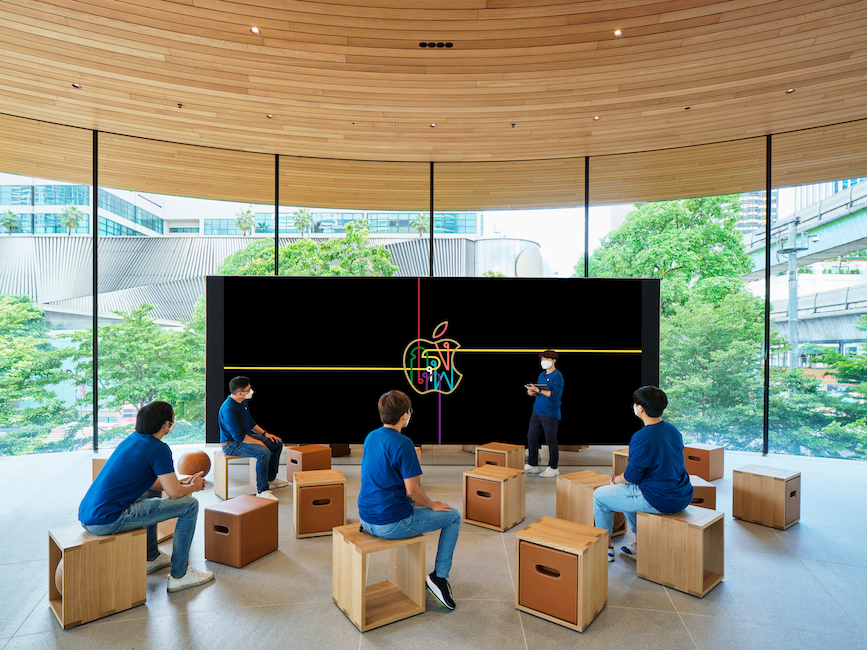 Apple Central World - Image courtesy of Apple
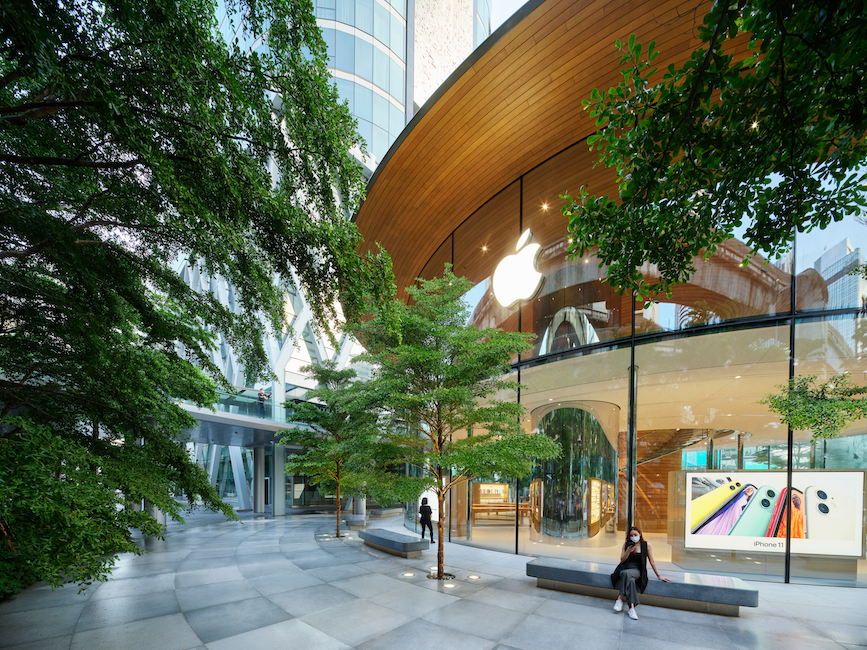 Apple Central World - Image courtesy of Apple
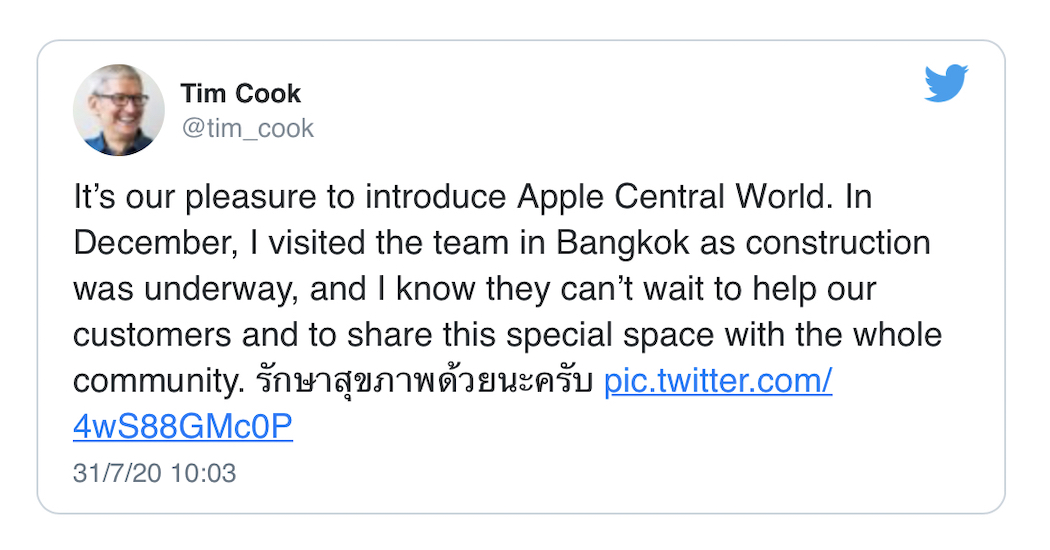
I looked in the Bluetooth settings and saw that it was not connected. When I tried to make the connection, I was told to attach the device to the iPad, although it already was attached. I had to take it off and put it back on again before a note came up, "Apple Pencil". It was then paired and connected properly.
As a check, I picked up my B&O headphones that were sitting on a table. I usually connect these to an iPad or Apple TV, but sometimes the iPhone. They were not initially recognized by the phone but after a short while there was a warning that they were unable to connect: try bringing them closer. Like the camera, they were right next to the iPhone. I made a couple more attempts and then began to think about how I was using the iPhone. The blue indicator was shown at the top left of the screen as a couple of apps were working through Bluetooth. One was a COVID-19 contact app that I had been trying out: no infected contact so far, but I was not surprised as few people would be using this specific app. I made that inactive but the blue panel still showed. That was because SnapBridge was still active. I had another go with the camera, but nothing had changed, so I made that inactive as well. Only then was the iPhone able to connect to the headphones. It would appear that background use of Bluetooth in iOS 13.6 has some shortcomings. I should file a report. A reply from Nikon following my earlier request arrived and I tried the suggestions that were made without success so I sent a reply. I was sent an other help message with a detailed list of things to try and things to reset. This is a job for a quiet Sunday.
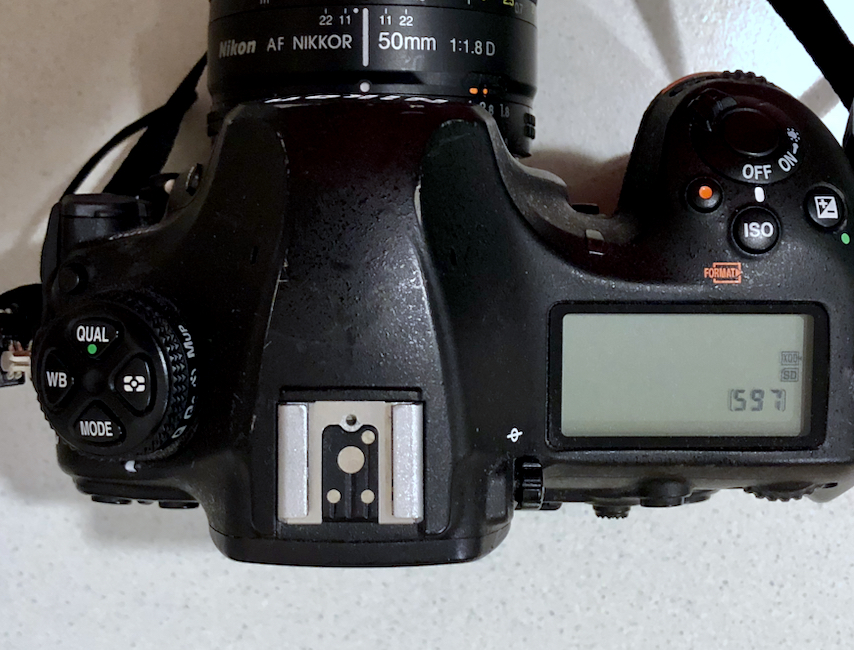
Nikon D850
The main thrust of the article was the numbering system used for documentation which was called Requests for Comments as they were modest enough not to call them "technical memos "standards" or "orders." Even "proposals" seemed too strong - we just saw them as ideas that we were communicating without prior approval or coordination. . . ." With no internet, these documents were distributed by US Mail. Within the narrative are some of the critical decisions made by these pioneers and how they affected the initial ideas: device agnostic, nodes, remote logins, protocols in layers; with some of the ideas later taken up by others to become critical in the software we use today.
It is the early advances on fibre optic cable that is the concern of Jay McGregor (TechRadar). I can remember the BBC covering the way this was being installed in a section of the telephone system in Hertfordshire and how the digital on/off signals would be much faster - and allow more data - than the analogue (waveform) copper cables that could only carry one call at a time. By 1979 Britain had "more fibre per capita than any other nation." By 1990 there were 2 factories in Britain producing the cable, but Thatcher decided that this monopoly on a technology was anti-competitive. My own reaction to that, in the light of how other nations operate, is So what? This truly was a forehead slapping moment. Instead a local system was shut down, the factories were sold to Fujitsu and HP, "the assets were stripped and the expertise was shipped out to South East Asia" while everyone else in other countries carried on with their own plans. With the break up of AT&T similar delays occurred in the USA and the rest of the western world "just followed like sheep." The UK is now talking about rolling out broadband and the definition of high speed is 24Mbps while I have 50Mbps in my condo in rural Thailand: a Third World country, with better internet than the First World. The UK has always lagged in this respect - and several others when it convinces itself that it is doing so well. When connectivity (initially with bulletin boards) arrived here in Thailand with 2400bps modems, I went to a computer show in London where an IBM presenter commented that one reason Britain was lagging behind in commerce (even then) was because telephone calls were time-metered, while in other countries there was a single (low) charge for each call. That's a problem with politicians: they think they know more than experts.
Graham K. Rogers teaches at the Faculty of Engineering, Mahidol University in Thailand. He wrote in the Bangkok Post, Database supplement on IT subjects. For the last seven years of Database he wrote a column on Apple and Macs. After 3 years writing a column in the Life supplement, he is now no longer associated with the Bangkok Post. He can be followed on Twitter (@extensions_th) |
|


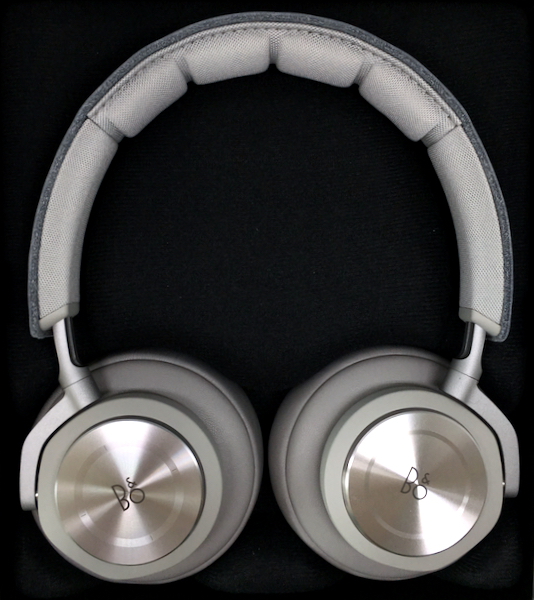 This seems to suggest some flakiness with Bluetooth at the moment as a couple of devices including the AirPods once or twice have not connected and I have had to resort to Settings and Bluetooth to make it right.
This seems to suggest some flakiness with Bluetooth at the moment as a couple of devices including the AirPods once or twice have not connected and I have had to resort to Settings and Bluetooth to make it right.
